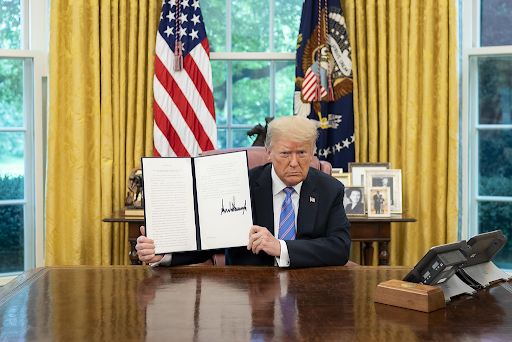While Europe is up in arms over Donald Trump’s new tariff threats, the country that could be most affected by the 25% levy on heavy-duty trucks is Mexico. According to Neil Shearing, chief economist at Capital Economics, the US sources a staggering 78% of its heavy truck imports from its southern neighbor, making Mexico exceptionally vulnerable to the new policy.
The critical question now is whether products compliant with the United States-Mexico-Canada Agreement (USMCA) will be granted an exemption. Shearing notes that historically, most product-specific tariffs implemented by the Trump administration have not included USMCA exemptions. “If there’s no USMCA exemption, then Mexico will be most heavily affected by the large truck tariffs,” he concluded. Canada, which supplies 15% of US truck imports, would also be impacted.
This development is part of a broader tariff announcement that has alarmed industries across the Atlantic. The UK’s pharmaceutical sector is facing a potential 100% duty on branded drugs, a threat that has triggered an urgent diplomatic response from the British government. This is because, unlike other sectors, UK pharma was not covered in a recent trade deal with the US.
In Europe, the German auto industry has been particularly vocal in its criticism of the truck tariffs, calling them “incomprehensible” and warning of negative repercussions for the US economy itself. The market has already reacted, with shares in European truck manufacturers like Daimler and Traton falling on the news.
The underlying strategy behind this tariff wave may be to incentivize US-based manufacturing. Analysts believe that companies, including pharmaceutical firms, with factories in the United States will likely be spared. This puts intense pressure on foreign companies to invest directly in the US or risk being priced out of the market, a policy that could reshape global supply chains.



